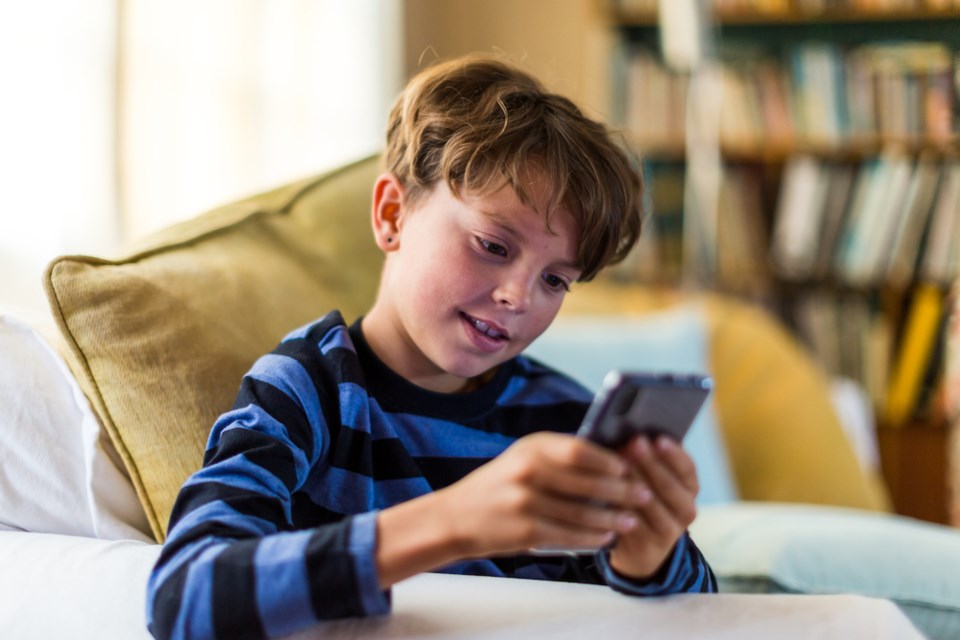Can social media be blamed for increased anxiety and mental health concerns among Tri-Cities youth?
That's the question educators are asking after the Seattle Public Schools filed a complaint against the companies operating TikTok, Instagram, Facebook, Snapchat and YouTube.
The Emerald City's school district wants more controls to safeguard students and support to meet the increased mental health needs.
But educators here in School District 43 (SD43) say such a lawsuit would never happen in Canada and they question whether all the burden can be placed on social media.
What's more they say the district is addressing the issue directly with parents and students, through programs to create awareness of online safety and promoting digital citizenship.
The problem
Rob Zambrano, an assistant superintendent, and Susan Ross, district principal of special projects, say the use of technology by students is not new and comes with the good as well as the bad.
"I think we can all agree that social media certainly plays a role in the relationships between students, but also between adults," said Zambrano.
"Whether you follow Twitter, or you're on on Facebook or other other sites, it's not just a kid problem. It's a it's a societal problem."
Believing that Americans tend to be more "litigious" than Canadians, he doesn't expect a law suit to happen here.
At the same time, he and Ross say schools are well-versed in dealing with the fallout from social media, whether it be infighting among students or feelings of sadness if their post doesn't get enough likes.
In the 2000s, MSN Chat was popular and sometimes resulted in problems among students, issues that text messaging and Snapchat could be blamed for now, say Ross and Zambrano.
Today, children 10 years and younger are being given phones — before they are developmentally aware of the consequences of their actions.
But youngsters aren't any different than they were a generation ago, despite the advent of technology.
What's new is that rumours can spread more easily to more people and the need for attention more quickly satiated through positive or negative online behaviour.
By middle school, students are deep into using social media or connecting via Discord or Twitch.
These messaging and livestreaming services can amplify troubles among students, without adults knowing what's going on.
"So students are still dealing with the same social challenges that they do at this developmental stage. But they're doing it on social media platforms," said Ross.
"And so it becomes a lot more challenging for adults to gauge the impact and to get involved in intervention."
Ross and Zambrano recommend that students connect with a "trusted adult" at school if they are dealing with a challenge with one or a group of peers, before things get out of hand.
A plan will be developed between the student, other kids involved, parents, teachers and the administration. But these plans need work and attention.
"It's really important for us to sort of make sure that we're all pulling on the same rope in the same direction. Things don't get resolved immediately, often, — it takes a bit of time," Zambrano said.
The solution
The educators say students need boundaries in how they use their phones, whether taught by parents or teachers.
In the last five years, there has been an enhanced focus on mental wellness, and learning how to be good digital citizens is part of that.
Upcoming programs this spring will deal with online safety, such as the growing dangers of sexual exploitation online, according to Carol Todd, who is the coordinator for digital literacy and citizenship for the school district.
Todd, whose own daughter was bullied and sexually harassed online, and who attended court for the conviction of her daughter's tormentor, said she understands the "rumblings" online that social media giants should take more responsibility for youth safety.
However, she notes that people often ignore privacy settings online and suggests education, awareness and talking about the issue is a positive step.
"It's making people aware of what’s out there and they have to take the time to look into it and read it and sometimes they don't."
Acknowledging that it's difficult to keep up with new trends in technology, Todd recommends a number of resources, including:
While it would give many people some satisfaction to see a successful suit against social media, educators the Tri-City News spoke to don't believe it's the solution.
Education, awareness and helping young people navigate this new world stand more of a chance of success.
"These are very complex things," Zambrano said.
"And I think it would be very naive to blame one one thing, it's maybe accelerated our concerns, but I think it's much more complex than blaming one platform."





